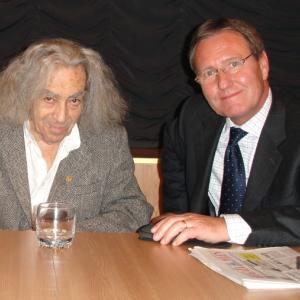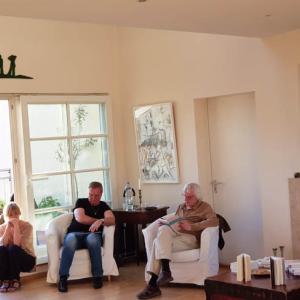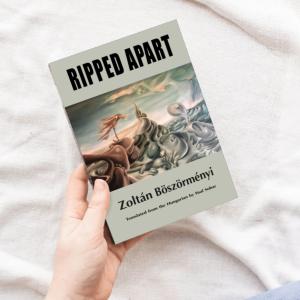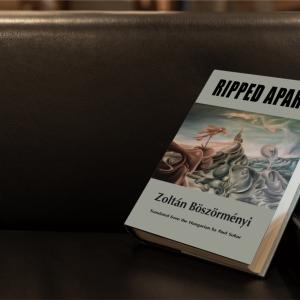
Near Something (Book Review)
Far from Nothing
Novel by Zoltán Böszörményi, translated from the Hungarian by Paul Sohar. 173 pp. Exile Editions, Holstein, Ont., Canada, 2006. ISBN 1-55096-055-5
This is a circular novel with a philosophical preamble consisting of a few classical quotations and sixty six segments. Each segment is either a scene or a reflection by the narrator that connects the thoughts and the scenes. The reader has a feeling of reeling along concentric circles, moving from the outer rings to the inner ones. He is far from nothing but near to something all the time.
The plot moves along sometimes on parallel lines, but sometimes we experience a glitch, and we get nearer to the kernel: all at once.
The novel has five main characters, including the prime mover, the narrator: Rudolf. Sex, envy, joy, reflection, poetry, (some) ambition, creature's comfort, (moderate) challenges are matter-of-fact commodities in this book not unlike the attitudes displayed in current American and English novels. Amis comes to mind.
In this world – partly created by the novel, partly paralleling the outside, the real world– the clue to existence is given in the very first sentence: “Nothing is certain, because certainty contains some degree of ambiguity.” And yet, despite the uncertainties, and ambiguities, which run through the book, the ending is certain, and dramatic. The loved one dies and we are left to imagine how the hero (Rudolf) will cope with this tragedy. One of the ambiguities, however, relates to the last part of the last sentence: the door to her apartment slowly swings open” (How could that be? The girl who used to live there is now dead.) The book suggests that the only moral loss is the loss of the person nearest to us: Elsa, Wanda. Everything else can be forgiven, forgotten – life, in whatever from – survives.
That novel has pace, appropriate modern scenery, short dialogues, longish monologues, all done in a well fitting language, which must partly be attributed to the English translator, Paul Sohar. Although the characters do not live a godly life, God itself (Descartes’ God) is not far from their thoughts. They may not obey the commandments (particularly not the sixth one) but– despite their palpable weaknesses– they do not commit despicable crimes either. Accidents have more weight than sins in this work. In the main character's soliloquies there's not a trace of ill-will or justification of aggression, to quote him about Christ, yet “After his death, as during his brief lifetime, hatred, revenge, mass killings went on as usual, as ever.” Alas, these words cannot be contradicted. There is no proof that Christianity has brought us anything else but solace.
The construction of this novel is interesting- it is a modern variant of a diary-novel, invented, in the 18th century by the French, and still extant in French literature. Although there is no counting of the days of the calendar we may read the events and thoughts as if they had happened in time warp of ten weeks. The voice of the narrator is, although confessional, free of sentimentality. The moral of the story is lifelike: so long as we survive the vicissitudes relatively intact, nothing will succeed like success.
Thomas Kabdebo























